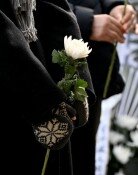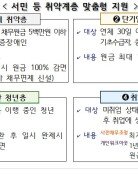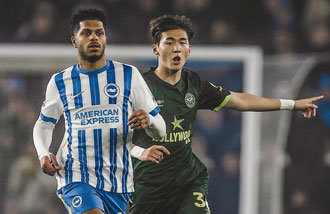Cheong Wa Dae Vs. Judiciary
A feud within the judiciary over the appointment of a new Supreme Court justice is highly likely to escalate into a conflict between the judiciary and the presidential office of Cheong Wa Dae.
Cheong Wa Dae, of course, is being very careful in its choice of both words and actions. Both Senior Secretary Moon Jae-in and Presidential Spokesman Yoon Tai-young refused comment other than, "We are in a position to speak about a problem within the judiciary."
However, Cheong Wa Dae is tilting towards justices who collected signatures to ask for reconsideration ahead of the recommendation of a candidate to fill a vacancy on the Supreme Court bench by Supreme Court Chief Justice Choi Jong-young. In line with this, Justice Minister Kang Kum-sil walked out of the conservative appointment committee, to show her protest against the existing seniority-oriented personnel administration system.
A problem faced by Cheong Wa Dae is whether it could reject the recommendation by the Supreme Court chief justice, though it sympathizes with the junior judges who called on the Chief Justice to renounce his earlier plan to recommend a conservative candidate.
Throughout Korean history, only former President Rhee Syngman gave a denial to the candidate recommended by the appointment committee in 1958.
And President Roh Moo-hyun could face criticism that he is infringing on the independence of the judiciary, if he were to refuse to appoint the candidate recommended by Justice Choi Jong-young.
In particular, the principle of checks and balances is reflected in the appointment process stipulated in the Constitution, where a recommendation is made by the Supreme Court Chief Justice, followed by the approval of the National Assembly with final appointment being made by the president. Therefore, if the motion for recommendation passes through the Assembly, it will be difficult for the president to refuse the appointment. Though, by law, the president has the right to refuse to appointment of a candidate recommended by the Supreme Court Chief Justice, the Chief Justice typically plays a critical role in the appointment of Supreme Court justices according to Supreme Court practice.
As Cheong Wa Dae appears to weigh in on the side of the junior judges, the Supreme Court says that it cannot but regard this as an encroachment on a constitutional right of the Chief Justice to make an unfettered appointment of the judiciary, which is one of the three powers whose separation is guaranteed in the Constitution.
In addition, Choi Jong-young, Supreme Court chief justice, has been reported to be insistent on choosing a candidate whose ability in trials was widely approved.
Some officials within Cheong Wa Dae see that judiciary reform is not the first item on the list. They say that there are a lot of problems to solve, such as public economic issues, and that it is not good to wage a full-scale war on the judiciary in the current political enviroment.
In fact, a Cheong Wa Dae office for civil affairs prepared a plan on reform of the judicial system earlier, but there has not been a debate on the plan, based on the decision that the reform is not a priority.
Against this backdrop, Cheong Wa Dae is careful in raising the possibility of its refusal to approve the recommendation, while expecting the Supreme Court to suggest a compromise plan that accepts some of the demands of the junior judges.
Jeong-Hun Kim Wi-Yong Jung jnghn@donga.com viyonz@donga.com






